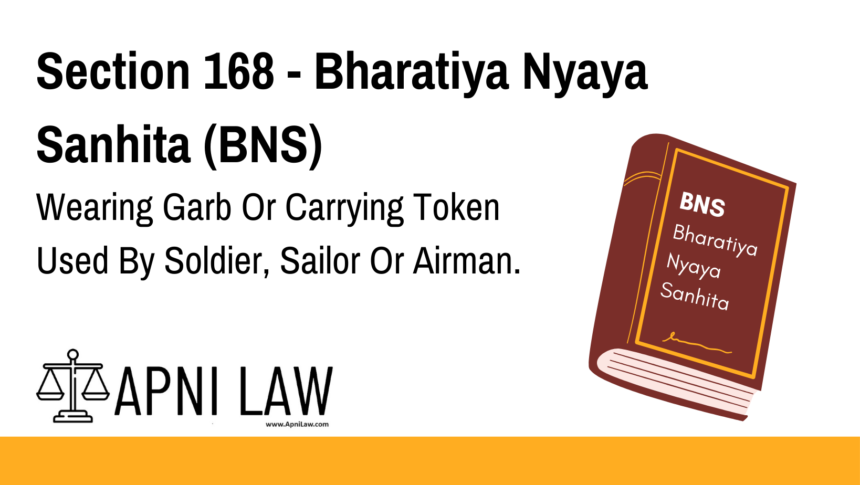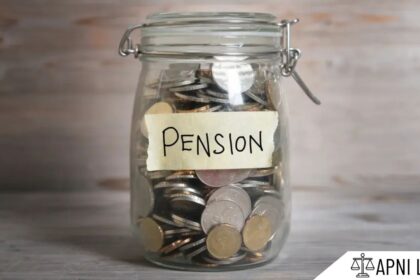Code: Section 168 BNS
Whoever, not being a soldier, sailor or airman in the Army, Naval or Air service of
the Government of India, wears any garb or carries any token resembling any garb or token
used by such a soldier, sailor or airman with the intention that it may be believed that he is
such a soldier, sailor or airman, shall be punished with imprisonment of either description for
a term which may extend to three months, or with fine which may extend to two thousand
rupees, or with both.
Explanation of Section 168 BNS
1. Purpose of Section 168 BNS
This section aims to prevent civilians from impersonating military personnel by wearing uniforms or carrying tokens that resemble those used by the Army, Navy, or Air Force.
2. Why is This Provision Important?
- Protects National Security: Prevents misuse of military identity for fraudulent activities.
- Prevents Deception: Ensures that only authorized personnel wear military uniforms.
- Maintains Public Trust: Avoids situations where civilians falsely claim military authority.
3. Key Elements of the Offense
- Unauthorized Wearing of Military Uniforms: If a civilian dresses like a soldier, sailor, or airman to deceive others.
- Possession of Military Tokens: Carrying badges, insignia, or other military-related items with fraudulent intent.
- Intention to Mislead: The law applies only if the person intends to make others believe they are in the military.
Illustration
Example 1: Civilian Wearing a Fake Military Uniform
A man wears an Indian Army uniform at an event to gain respect and credibility. Since he is not a soldier, he can be punished under Section 168 BNS.
Example 2: Fraudulent Use of Military Badges
A person carries a fake Navy ID badge and claims to be a naval officer to gain free entry to a restricted area. This act falls under Section 168 BNS and is punishable.
Example 3: Impersonation for Financial Gain
Someone dresses as an Air Force officer and collects money by falsely claiming it’s for a veteran’s welfare fund. This act constitutes fraud and violation of Section 168 BNS.
Common Questions and Answers on Section 168 BNS
1. Is it illegal to wear a military uniform for fancy dress competitions?
No, unless the person intends to deceive others into believing they are a real soldier, sailor, or airman.
2. Can I wear a camouflage T-shirt in public?
Yes, casual military-inspired fashion is not illegal. However, wearing a full military uniform to impersonate a soldier is punishable.
3. What if I collect military badges as a hobby?
Collecting authentic or replica military badges is legal. But using them to impersonate military personnel is a crime.
4. What is the punishment under Section 168 BNS?
The offender can face:
- Up to 3 months of imprisonment.
- A fine of up to ₹2,000.
- Both imprisonment and fine, depending on the severity.
5. Are there similar laws in other countries?
Yes, many countries have laws against military impersonation, such as:
- The Stolen Valor Act (USA)
- The Uniforms Act (UK)
Conclusion
Section 168 BNS ensures that civilians do not misuse military identity for personal gain or deception. This law is crucial in protecting the integrity of the armed forces and preventing fraud.
For more legal insights, visit ApniLaw today! 🚀








